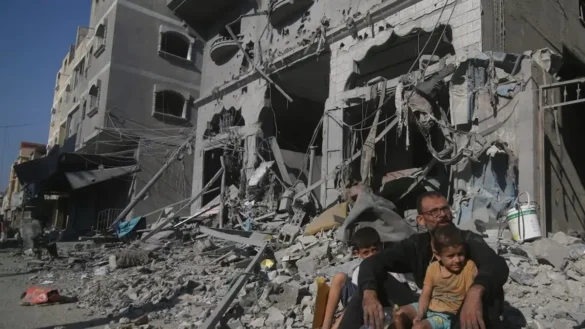The situation in Gaza and the Occupied Palestinian Territory has reached a critical point, as UN relief chief Martin Griffiths recently described it as “beyond devastating.” The ongoing conflict and hostilities have resulted in significant human suffering, with children being the most vulnerable victims. In this blog, we’ll delve into the heart-wrenching reality of the crisis, the impact on children, and the urgent need for a humanitarian ceasefire and increased aid.
The Unbearable Suffering of Gaza’s Children
Martin Griffiths spoke with families in Gaza, who have endured immense hardships since the start of Israel’s retaliation for Hamas’ attacks in October. Families are living in agony, not knowing if their loved ones are dead or alive. Shockingly, more than 3,450 children have been killed in Gaza, and over 1,000 are reported missing, possibly trapped or buried under rubble. The thought of children suffering in this manner is nearly unbearable. The trauma faced by survivors is expected to have long-lasting effects, impacting these children for decades to come.
The High Price of Dehydration and Mental Health
Besides the immediate threat of violence, Gaza’s residents face another silent crisis. Gaza’s water production is at only five percent of the required volume due to non-functioning desalination plants, which has led to infant deaths due to dehydration. The daily stress and fear have taken a toll on children’s mental health. Some, like a four-year-old girl, have resorted to self-harming as a coping mechanism, demonstrating the dire state of psychological well-being. For parents in Gaza, the priority is keeping their children alive, leaving little room to address their mental health. This highlights the urgent need for relief.
The Call for Humanitarian Ceasefire and Increased Aid
UNICEF and other humanitarian organizations have consistently called for an immediate humanitarian ceasefire. This would provide a temporary respite for the more than one million children in Gaza living through this nightmare. Humanitarian access points must be opened to allow the sustained entry of aid. A 72-hour ceasefire alone could make a significant difference, ensuring a safer environment for children. While some humanitarian aid has entered Gaza through the Rafah crossing, the amount remains a fraction of what’s needed to prevent further deterioration and civil unrest in the region.
Protecting Medical Facilities and Seeking Peace
Attacks on health facilities are compounding the public health catastrophe in Gaza. The UN has documented 82 attacks on health infrastructure. Hospitals are protected under international humanitarian law, and using them for military purposes would constitute a war crime. Both sides must adhere to these rules to ensure the safety of medical units at all times. A peaceful resolution to the conflict remains the ultimate goal, as it’s the only way to prevent further suffering and ensure a brighter future for the children of Gaza.
Winding it up
The humanitarian crisis in Gaza is a dire situation that demands immediate international attention. The suffering of children and the need for aid and a ceasefire are paramount. The world must unite to protect the most vulnerable and work towards a lasting peace in this troubled region.


